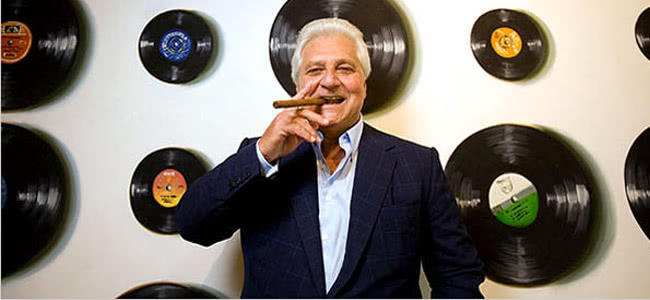Following on from revealing plans for a music streaming service to compete with the likes of Spotify, and its overhaul to the ever-popular range of music players, technology titans Apple also successfully (if you ignore the Google maps controversy) launched the iPhone 5, selling 5 million units in its first week.
One touted feature that was notably absent from Apple’s new product however was the lack of its own built-in streaming service, which according to the New York Post was dramatically scrapped at the last minute due to a dispute with what is now the world’s largest music publisher, Sony ATV over a royalties dispute.
Apple’s proposed built-in streaming for the iPhone 5 relied on the blessing of Sony ATV because it lacked the recorded music rights from the labels, making Sony ATV the key-holders to the gates of the record labels and the ‘Big Four’ (Sony, Warner, EMI and Universal) and access to their music catalogues.
The news come at the same time that Sony ATV has voiced intentions of pulling out of agreements with two of the world’ main copyright associations, Ascap and BMI, this January. Ascap and BMI have the power to negotiate streaming rights for all members and artists. Which essentially means that the publishing body won’t let the copyright body pay the artists, claiming that they’ll be dealing with the royalties schemes and pay the artists direct themselves for the streaming of its music.
It’s the first big move from Sony ATV, since they absorbed Britain’s EMI Music Publishing last July. The publishing company’s owners, Sony Corp in Japan, bought up EMI’s publishing catalogue for a reported $US 2.2 billion from prior owners, Citigroup, effectively making it the larget music copyrights company in the world controlling a third of the world’s publishing revenue.
The merger of their 750,000 tracks with EMI’s booming 1.3 million song catalogue gave them control to everything from The Beatles, The Beach Boys and Motown, to modern artists like Jay-Z and classics like “Somwhere Over The Rainbow”, and nearly 2 million more famous tunes besides.
Though regulators would only clear the deal if Sony/ATV auctioned off its Virgin Music and Famous publishing catalogues – including those of Iggy Pop, Culture Club and Lenny Kravitz – which they are currently complying with, but if their spat with Apple is accurate, combined with the rumours they may be pulling out of negotiations with Ascap and BMI over publishing rights, it’s the first sign that the record labels’ power mergers are spelling bad news for music artists.
It’s the latest news in some pretty big moving and shaking from the world’s biggest record labels, with Warner’s and EMI’s CEOs abruptly stepping down in light of the recent Universal/EMI merger, a move that Australia’s Independent body, AIR, criticised the ACCC for letting go through unimpeded.
Meanwhile, Sony ATV’s owner, Sony Corp, is a direct competitor with Apple in the field of consumer electronics, but rejecting what would have been a lucrative deal between the two could mean more than just a matter of rivalry, leading to speculation that Sony could be putting together their own plans with how their sizeable share of the publishing market is licensed.
While Apple is looking into other ways of implementing streaming services, including a possible iPhone update, perhaps Sony Corp is looking at launching its own streaming service? It’s not such a wild idea, with the success of services like Spotify and Deezr making the new streaming phenomenon now a booming $1 billion part of the music industry, many are looking to get a slice of the action at a time when music is seen as a dwindling financial exercise.
Including Canadian music legend Neil Young, who recently revealed plans of his new iPod killer, a digital music player that focuses on a recording technology that preserves the fidelity of music the way it was intended, giving Apple another reason to worry about their dominance in the music field.
Meanwhile, the artists themselves are left wondering where all the money is going if it’s not reaching their pockets (particularly indie darlings Grizzly Bear), but Rdio have made a bold new move, yesterday announcing their new ‘Artist Program’ that pays musicians and recording artists direct – not for the streaming of their music, but for how many fans they can sign up as subscribers.

































